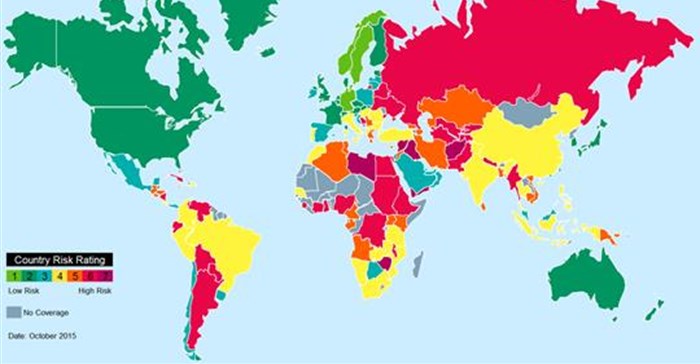
Top stories






More news


Marketing & Media
Ads are coming to AI. Does that really have to be such a bad thing?














With no clear end in sight for the downward pressure on the mining and energy commodities that are central to many African economies, sub-Saharan Africa has recorded an increase in supply chain risk for six consecutive quarters.
For South African businesses, lower global prices for gold and platinum are dampening exports while Angola, Ghana and Nigeria are all struggling with low oil prices. The drop in commodity prices is also threatening to damage national finances in parts of the continent. Nigeria, for instance, relies on oil for 90% of government revenue. With budget deficits rising, infrastructure improvements, which have proved a vital source for growth in recent years, may be cut and with them access to foreign markets. With all available slack now long gone, procurement teams across Africa will need to keep a careful watch for corner cutting, delayed deliveries and sub-standard worker conditions in their supply chains and investigate exactly how cost reductions are being made.
Depressed commodity prices are not bad news for everyone. Savings rates are rising as a direct result of the commodities price crash with less commodity dependant economies in Africa reaping the benefits. The tourist base of Mauritius' economy has allowed it to benefit, while Kenya's broader economic base has also fared well.
Released for the first time in South Africa, the CIPS Risk Index is produced by Dun & Bradstreet economists and has been backdated to track the durability of global supply chains since 1994. In the last two decades, global supply chain risk has more than doubled from a score of 23.7 in Q3 1995 to a record high of 82.4 in Q3 2014. As of Q3 2015, global supply chain risk remains perilously close to the all-time high, standing at 79.1.
According to the latest CIPS Risk Index, South African businesses with international supply chains are having to manage their way through a series of uncertain geopolitical developments. In MENA, armed conflict with IS is forcing supply chains off dangerous land routes into more expensive Mediterranean Sea freight. In Western and Central Europe, the flight of refugees from the same conflict has motivated the reintroduction of long-abolished border controls with logistics firms reporting delays and rising costs. Finally, international sanctions placed upon Cuba and Iran for decades are finally easing. Iran's economy (the 28th largest in the world) is likely to have the greatest impact on sub-Saharan Africa, opening up new logistics routes through an unstable region and keeping commodity prices low.
Andre Coetzee, MD of the Chartered Institute of Procurement & Supply (CIPS) Africa said: "The pain from the commodity price crash is being felt unevenly across Africa and South Africa's mining exporters are under particular pressure. Supply chain managers in South Africa are increasingly expected to find cost savings in their supply chains and that makes supplier relations and skills more important than ever. With margins tight, supply chain managers in South Africa must rely on best practice supply chain management to avoid nasty surprises and weather the commodity price slump."